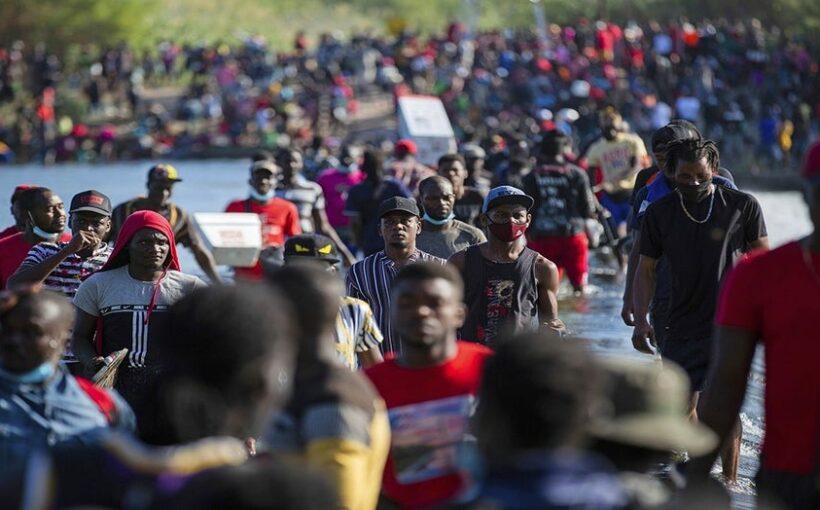Del Rio residents decry ‘tragic’ crisis at the border
Lee and Najla Weathersbee, residents of Del Rio, express their fears as thousands of migrants wait at the border to enter the U.S.
The river that Haitian migrants crossed to enter the little town of Del Rio, Texas is the Rio Grande, but for American immigration policy itself, it was a kind of Rubicon that was crossed this month.
This town, like so many along the U.S. border with Mexico is accustomed to frequent treks to the Rio Grande by those seeking to entering America illegally. But what they are not accustomed to is massive shanty towns created in the shadow of their communities.
Over lunch on Sunday I talked to Paul, who has lived in Del Rio since 1968. “It’s the damnedest thing I’ve ever seen,” he told me, going on to say, “you can’t have a town under these conditions.” Even with the 15,000 migrants under the bridge now cleared out, Del Rio is awash in Border Patrol, Texas Department of Safety, Immigration and Customs Enforcement personnel.
It still feels like a town under siege.
Images like those under the International Bridge here are foreign to Americans but not entirely new.
Throughout Europe over the past few decades we have seen such temporary communities of migrants with marginal status metastasize into quasi-permanent slums. And we have seen violence erupt in such places.
That was a real fear here and it is a situation that the federal government must make sure never repeats itself.
One ray of hope is that the United States might not be alone in this fight. Several agents I spoke to on the ground pointed to the fact that last week the Mexican government assisted heavily in flying and bussing out the Haitian migrants.
This was enlightened self-interest. Until this past weekend the crisis had shut down the border between Ciudad Acuna in Mexico and Del Rio, at a massive economic cost to Mexicans. The governments on both sides of the border have a vested interest in ensuring that this never happens again.
In Del Rio, under the scrutiny of proximity and familiarity, the national narratives about just what happened here gets a little hazy.
For one thing, most of the people in the city and the county are Hispanic and many are the children or grandchildren of illegal immigrants of the past. Ties to Mexico are close, and the idea that the reaction to the scenes under the bridge represented some kind of white supremacy just fall apart.
One guy, a Cowboys fan who gave me a ride back to my hotel after the town’s one Uber driver mysteriously went off the grid, has many border patrol agents in his family.
The agents themselves, though quietly pointing to loss of morale, do not express anger at being painted as racists, at least not to me, but to their friends here, that is a different story. “It’s disgraceful,” he told me as we drove the dusty, hot road.
And even on the national scale something interesting happened in regard to the images of border agents on horseback. In the past conservative commentators and GOP officials would have opened their defense of the agents with some hemming and hawing about the past ills of America that the pictures supposedly evoked.
That didn’t happen. Allegations of racism, even when absurd on their face, were once kryptonite to conservatives. Increasingly, that is simply not the case anymore, this time it was simply and flat out called B.S.
This is a new chapter in the story of immigration. With another 20,000 Haitians beginning their journey to the Texas border the Biden administration knows that there must not have a repeat of what we saw under the bridge. They may have a willing partner in Mexico. But it also might not be enough.
At long last Congress, the White House, everyone, needs to focus on a comprehensive set of policies and goals. What do we want immigration and the border to look like?
We owe it to towns like Del Rio, those places along our border that we only ever think about when things are going wrong. They are on the front lines, and they need our help.
Source: Read Full Article




